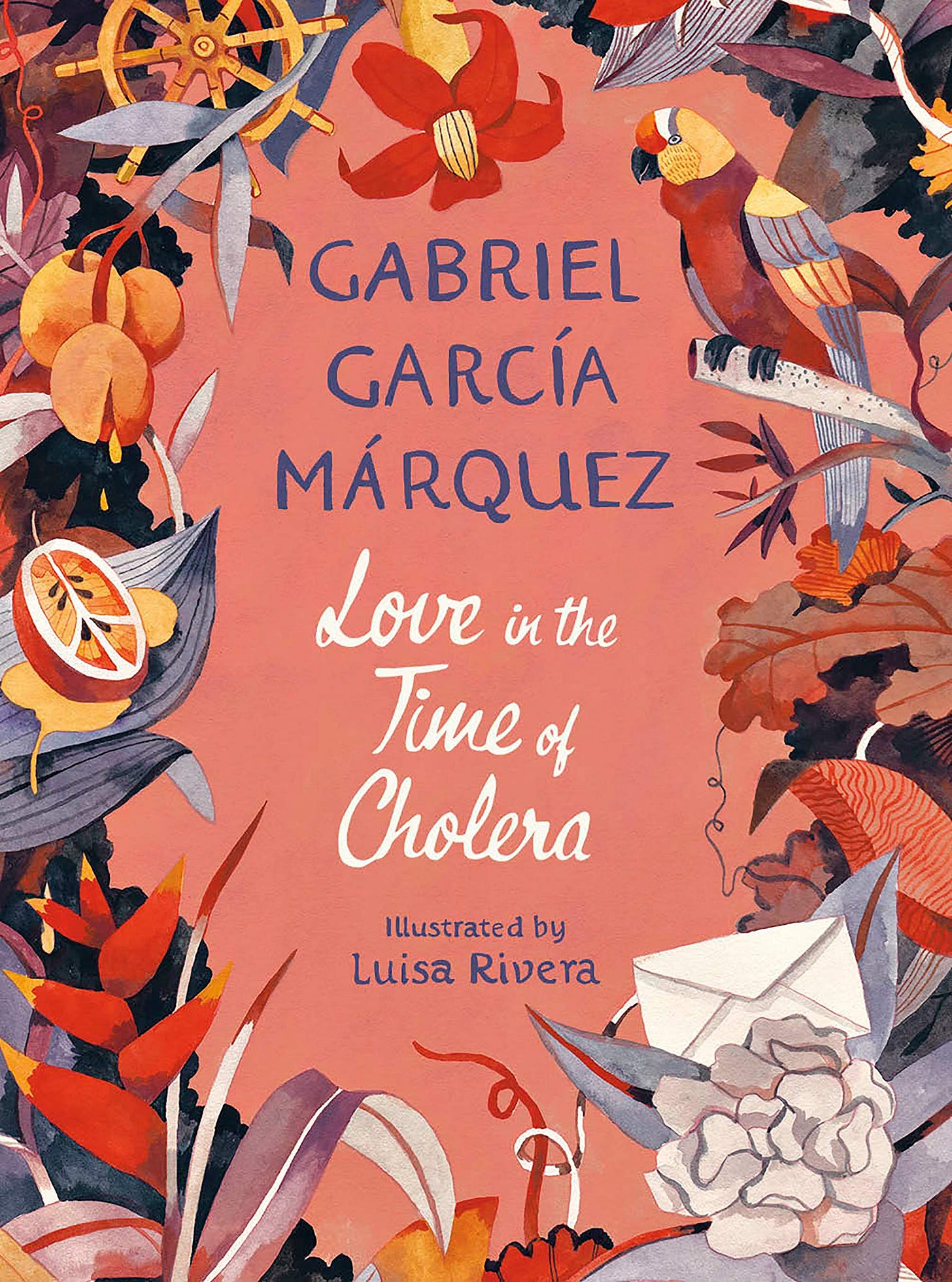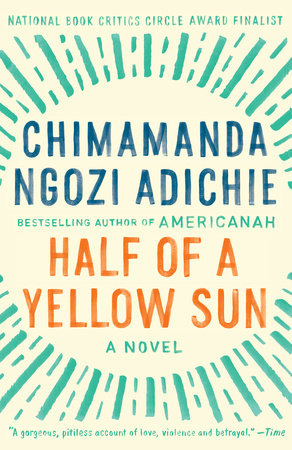Why read books from other continents
And a small list of recommendations
This article was adapted from a guest post I made for a while ago.
Everything in our lives is a narrative; we are stories.
We understand ourselves through narratives. What made us who we are, where we came from, where we were born, and the many things that happened to transform us and create our story. Through our stories, we can explore different perspectives and gain a deeper understanding of ourselves and the world around us.
When we struggle to change ourselves, it’s probably because it doesn't fit anymore in the narrative we had about ourselves before. Big changes, such as death, divorce, or having a baby, all reshape how we understand our own story to be. When there's an abrupt change, we struggle to make sense of our own experiences and create a coherent sense of self.
And the world is also a story that becomes history. History is told from the winning side. We fight for changing narratives; we fight for our own to prevail. How we want the world to be in the future—our utopia—is a story. Shared narratives help us understand our place in the world and connect with others who share our cultural identity.
Everything is a matter of who says it and how.
We understand our world through stories. The problem is that most of those stories come from people living only in a few places. Take a look at your bookshelf. Chances are there are European and North American authors there. Perhaps you have some Latin American writers too—maybe some Russians?
As Chimamanda Ngozi Adichie says in her many speeches, it is dangerous to only read about the lives and experiences of one part of the world. It creates a biased view of those living in other parts.
Once she left Nigeria to study in the U.S., she said she felt like everyone around her could only see her through the one vision they had of Africa: that of catastrophe.
Her brand-new roommate on campus could not believe she listened to Mariah Carey, could use a stove, or even spoke English. Her roommate had never come into contact with Nigerian stories and didn’t know what life over there was like or people's aspirations and dreams. She had never met a Nigerian, watched a movie about it, or read a book about it. The few stories out there about Africa and its people are about catastrophes, so how could she think about it differently?
Compare that to the U.K., which boasts hundreds of years of famous literature read everywhere. You can find UK literature about catastrophes, but there are also romances like Pride and Prejudice. There are hundreds of books fictionalizing British history, such as the famous Pillars of the Earth, children's classics such as Peter Pan, and many, many more stories.
We have all read countless stories about the "developed world”, which allows me (a Brazilian) to know, for instance, that people from Texas and Illinois have utterly different experiences and ideas. And even within a single city such as New York, we know people differ in their personal circumstances. Meanwhile, most of us assume that people in different countries—even continents—are homogenous.
Reading authors from other regions creates empathy. It helps us better understand other continents through their own experiences. It's also perfect for learning. If you also love traveling, it's a cheap way to be transported to a different place, culture, and time. What's better than that?
I'm a true believer that more diverse stories are a huge part of a better world. Cold data and reports will not sway anyone. We need stories that put us in other people's shoes to truly understand and empathize. It's even better if you can hear the stories of someone completely different from you over a drink or coffee. But it may not be accessible to all, so for now, books will suffice.
Here is a small list of recommendations by continent:
South America
Love in the Time of Cholera by Gabriel Garcia Marquez
Although Nobel Prize winner Garcia Marquez's most famous book is One Hundred Years of Solitude (which is also great), I would first recommend Love in the Time of Cholera. I think it's more accessible. It's the story of a long love affair between two characters, Florentino Ariza and Fermina Daza, in the beautiful and colorful city of Cartagena, Colombia.
Dom Casmurro by Machado de Assis
Machado de Assis is probably Brazil's most acclaimed writer, although in numbers he can't compete with Paulo Coelho and his bestseller The Alchemist (which has nothing to do with South America). Dom Casmusso tells the story of Bento Santiago, as he suspects that Capitu, his wife, cheated on him with his best friend. The novel explores themes of jealousy, betrayal, and memory and is considered a masterpiece of Brazilian literature. Machado de Assis is known for his unreliable narrators and satirical commentary on society. He was a black writer in the late 1800s in a slave society and managed to be successful despite it.
The House of Spirits by Isabel Allende
The book spans several generations of the Trueba family, from the patriarch, Esteban Trueba, to his great-granddaughter, Alba. It is closely based on Allende's family. Allende weaves political and social commentary throughout the novel, exploring themes such as feminism, socialism, and the struggle for power. Magical realism is prominent in the book, with supernatural elements and mystical occurrences.
If you haven't yet, please go listen to her interview with Julia Louis-Dreyfus.
Africa
How Europe Underdeveloped Africa by Walter Rodney
This is the only nonfiction book I will include on the list. I have written a whole review about it; you can read it here.
Half of a Yellow Sun by Chimamanda Ngozi
Loosely based on Chimamanda's parents’ story, Half of the Yellow Sun talks about a turbulent period in Nigeria during the 1960s. This includes the attempt to create a separate country called Biafra. Chimamanda is an excellent writer and constructs interesting characters. She manages to make war and famine not dominate the book, despite the brutality of that period.
Sleepwalking Land by Mia Couto
I had a hard time reading this book, but I'm glad I finished it. It's pretty heavy on magic realism, but it makes for a beautiful book about Mozambique and its people. It was also very interesting to read this book in the original language (Portuguese) and to find many words and expressions particular to the country, which I was pretty happy to learn.
Asia
Wild Swans by Jung Chang
Wild Swans tells the story of three women—Jung Chang herself, her mother, and her maternal grandmother—whose fates reflect 20th-century China's tumultuous history. As the years pass in this tightly woven family plot, we see three lives unfold through the century with love, tragedy, and renewal. I read this a long time ago, but it has definitely stuck with me.
Kafka on the Shore by Haruki Murakami
This Japanese book follows the parallel journeys of Kafka Tamura, a fifteen-year-old boy who runs away from home, and Nakata, an old man who has lost his memory. The novel is filled with surreal and fantastical elements, as well as philosophical musings on life, death, and identity. Murakami's writing style is dreamlike, with vivid imagery.
Beast of a Little Land by Juhea Kim
I'm still reading this one, about 1/3 of the way through. Although Juhea Kim was born in Korea, I feel like this book has a Western vibe. Still, it is packed with Korean history, from 1917 to 1964. I'm learning a lot, and her writing is enticing. But I can't help but think about a Note I read the other day about how books about Asian countries that are best-sellers in the West are filled with suffering, and this one is really not an exception.
Eastern Europe and Oceania
I haven't read any books (or can't recall any) from Eastern Europe, although I know there are many classics. I tried Anna Karenina and Crime and Punishment but never finished them.
I haven't read any books from Oceania either. I have read a few Australian books, but they were mostly about white suburban life and don't really fit under "underrepresented stories.” I'm certain there must be interesting Polynesian or Maori books, but I, unfortunately, don't know them.
Let me know if you have any suggestions for those regions!
If you want more books on this theme, here is a list on Goodreads: Best Multicultural General Fiction
*Bookshop.org links are affiliated links.
P.S.: Last week's post had a very lively discussion in the comments. It was quite nice to see. The biggest response so far. Hop over there if you are interested.








Poignant post ❤️ Same should be said about the Substacks people follow and subscribe too. It’s so important to diverse our pallets in every way possible. Thank you for speaking on this.
If you’re after Māori books, I would highly recommend Auē by Becky Manawatu. Devastating but beautiful and tender.